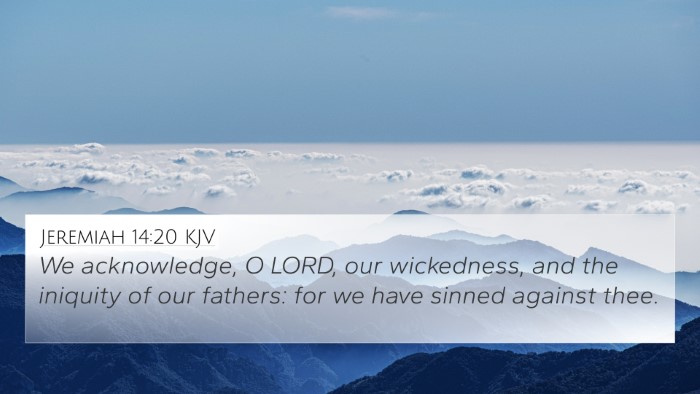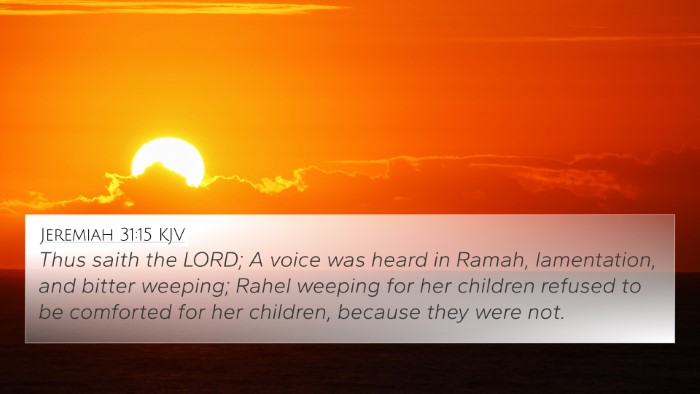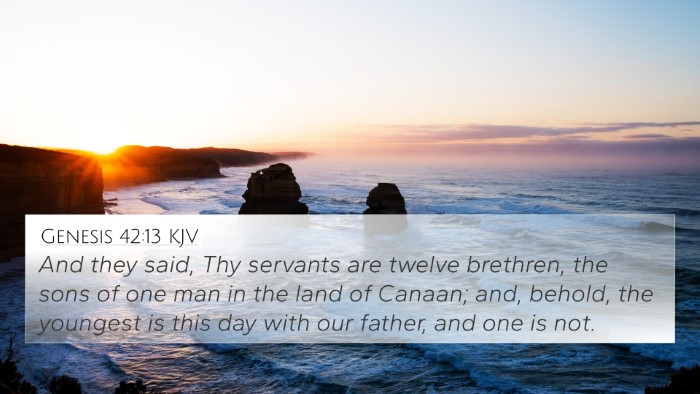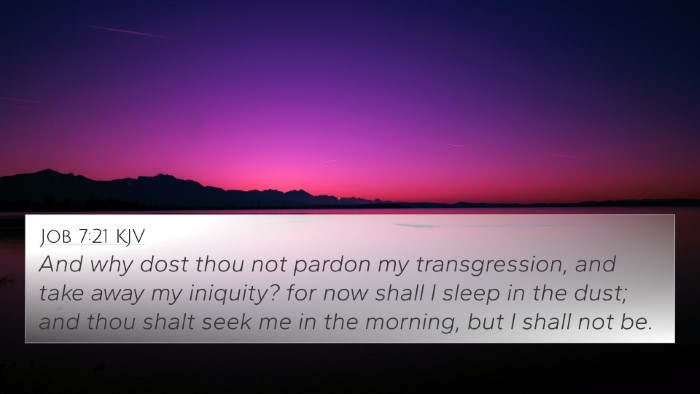Lamentations 5:7 - Understanding the Verses
Lamentations 5:7 states, "Our fathers have sinned, and are not; and we have borne their iniquities." This verse encapsulates profound themes of guilt, accountability, and the consequences of sin across generations. Through a close examination of the verse and its context, we gain insight into the theological and moral lessons it conveys.
Overview of the Verse
In this poignant verse, the author reflects on the pain and suffering experienced by the Israelites, linking their current plight to the sins of their ancestors. This recognition of inherited sin manifests the reality of communal sin and its enduring repercussions, resonating deeply with the concepts of collective responsibility found throughout Scripture.
Combined Insights from Public Domain Commentaries
Drawing from notable commentaries including those by Matthew Henry, Albert Barnes, and Adam Clarke, we can summarize several key points regarding Lamentations 5:7:
- Matthew Henry: Henry emphasizes the sorrow of the speaker as they bemoan the suffering brought on by both their own and their ancestors' transgressions. He points out that while individuals may not be punished for the sins of their forebearers, the consequences are often felt in the community.
- Albert Barnes: Barnes interprets this verse as an acknowledgment of the weight of guilt that the present generation bears due to the sins of the past. He highlights the relationship between sin and suffering, suggesting that the collective moral failings have dire effects on current generations.
- Adam Clarke: Clarke comments on the grave nature of the statement, noting that it serves as a plaintive recognition of the Israelite’s plight. He underscores the importance of repentance and turning back to God to restore favor and alleviate the burdens carried from past sins.
Thematic Connections and Cross-References
Lamentations 5:7 not only stands alone but also connects with various other Scriptures that explore similar themes of sin, guilt, and the consequences of actions. The cross-references below provide a richer understanding of the biblical narrative surrounding this verse:
- Exodus 20:5: "Visiting the iniquity of the fathers upon the children unto the third and fourth generation of them that hate me." This verse directly addresses generational consequences of sin.
- Deuteronomy 24:16: "The fathers shall not be put to death for the children, neither shall the children be put to death for the fathers: every man shall be put to death for his own sin." This highlights individual accountability despite shared suffering.
- Ezekiel 18:30: "Therefore I will judge you, O house of Israel, every one according to his ways, saith the Lord GOD." This emphasizes personal responsibility in the context of sin.
- Romans 5:12: "Wherefore, as by one man sin entered into the world, and death by sin; and so death passed upon all men, for that all have sinned." This ties the concept of inherited sin into the New Testament.
- Galatians 6:5: "For every man shall bear his own burden." A reminder again of individual responsibility despite communal suffering.
- Matthew 23:34-36: Jesus speaks to the ongoing pattern of sin and its implications on current generations, pointing to the consistent disregard of prophetic warnings.
- Jeremiah 31:29-30: "In those days they shall say no more, The fathers have eaten a sour grape, and the children's teeth are set on edge." A significant shift indicating a moving away from generational excuses.
Conclusion
Lamentations 5:7 serves as a critical reminder of the interconnectedness of sin and its effects on familial and communal structures. This verse beckons readers to reflect on their own lives and the impact of their choices and to remember the importance of seeking restoration through repentance. By cross-referencing it with related scriptures, one can deepen their understanding of the complexities surrounding sin and redemption in the Biblical narrative.
Tools for Further Study
For those looking to engage more deeply with Lamentations 5:7 and its thematic connections, consider these tools for Bible cross-referencing:
- Bible Concordance: An invaluable resource for finding scripture references and definitions.
- Bible Cross-Reference Guide: A tool to help navigate links between verses for comparative analysis.
- Comprehensive Bible Cross-Reference Materials: Essential for thorough study and sermon preparation.
- Bible Chain References: Connect verses thematically to identify patterns in scripture.
How to Use Cross-References Effectively
Understanding how to use Bible cross-references empowers readers to uncover deeper insights. By identifying connections between Old and New Testament texts, engaging in detailed cross-reference studies, and interpreting themes through a lens of interconnected verses, individuals can enrich their study of scripture while grasping the weight of verses such as Lamentations 5:7.














